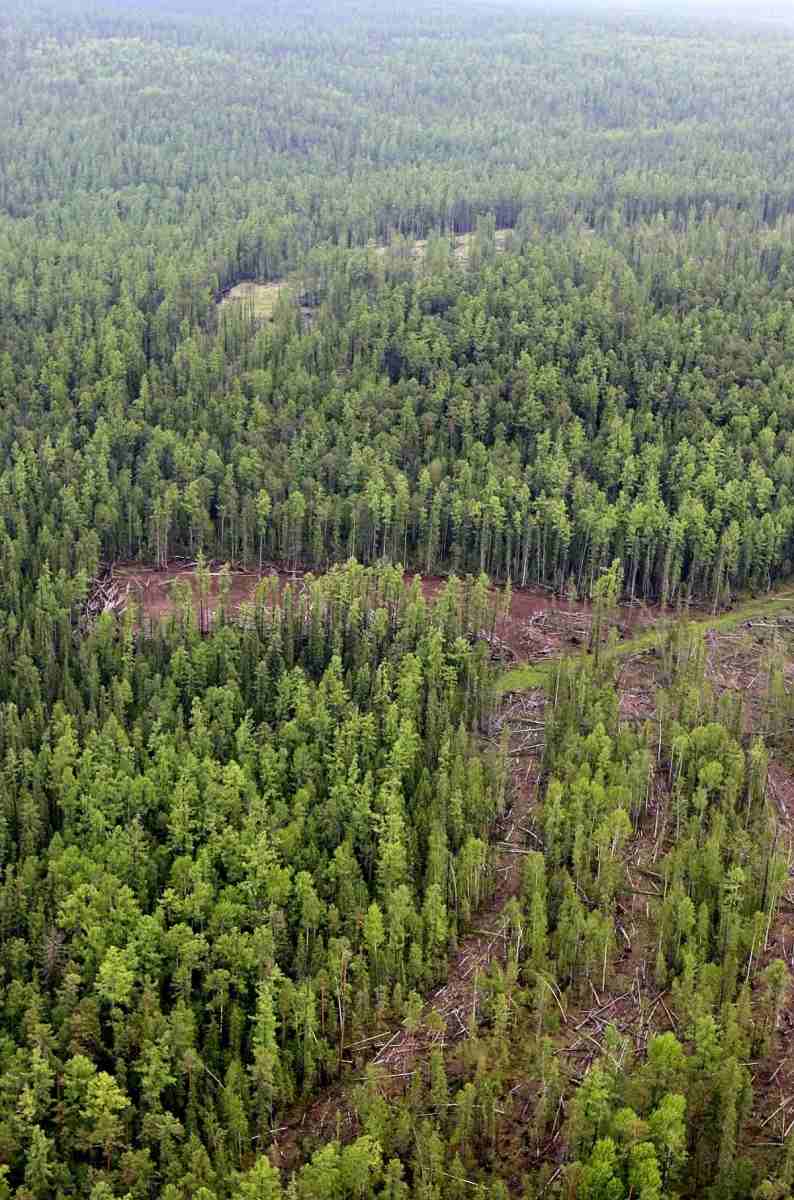Study: Siberian Wildfires Could Kill 20,000 a Year in Japan; Team Analyzed Past Blazes to Model Effects of Air Pollution

Deforested areas are seen in eastern Siberia in June 2006.
16:14 JST, June 16, 2024
A team of researchers has said that at least 20,000 more people will die in Japan a year due to air pollution if large-scale forest fires occur in Siberia.
The results of the research by a team from Hokkaido University, the University of Tokyo and others, published in scientific journal Earth’s Future, indicate the need for multinational efforts to prevent wildfires.
In 2003, about 20 million hectares of forests, equivalent to more than half the land area of Japan, are reported to have burned in Siberia. The research team used the results of these wildfires to estimate the amount of health problems and other issues caused by air pollution.
The research results showed that the hypothetical outbreak of large-scale forest fires that produced twice the amount of air pollutants such as fine particulate matter (known as PM2.5) as in 2003 could result in at least 20,000 more deaths per year in Japan than in a year with few forest fires.
“It shows that Japan is not immune to ‘transboundary air pollution’ caused by forest fires,” said Teppei Yasunari, associate professor of atmospheric and environmental science at Hokkaido University.
The increasing frequency and scale of forest fires due to global warming and other factors have become a global trend. Last year, wildfires in Canada caused air pollution in New York.
“It is a novel study that takes a new approach to its research,” said Keiji Kushida, professor of global environmental studies at Nihon University. “If this type of analysis is applied to other forest fires and different conditions, it will lead to more meaningful results.”
Top Articles in World
-

China Confirmed to Be Operating Drilling Vessel Near Japan-China Median Line
-

China Eyes Rare Earth Foothold in Malaysia to Maintain Dominance, Counter Japan, U.S.
-

Japan, Qatar Ministers Agree on Need for Stable Energy Supplies; Motegi, Qatari Prime Minister Al-Thani Affirm Commitment to Cooperation
-

North Korea Possibly Launches Ballistic Missile
-

10 Universities in Japan, South Korea, Mongolia to Establish Academic Community to Promote ICC Activities, Rule of Law
JN ACCESS RANKING
-

Univ. in Japan, Tokyo-Based Startup to Develop Satellite for Disaster Prevention Measures, Bears
-

JAL, ANA Cancel Flights During 3-day Holiday Weekend due to Blizzard
-

China Confirmed to Be Operating Drilling Vessel Near Japan-China Median Line
-

China Eyes Rare Earth Foothold in Malaysia to Maintain Dominance, Counter Japan, U.S.
-

Japan Institute to Use Domestic Commercial Optical Lattice Clock to Set Japan Standard Time

























